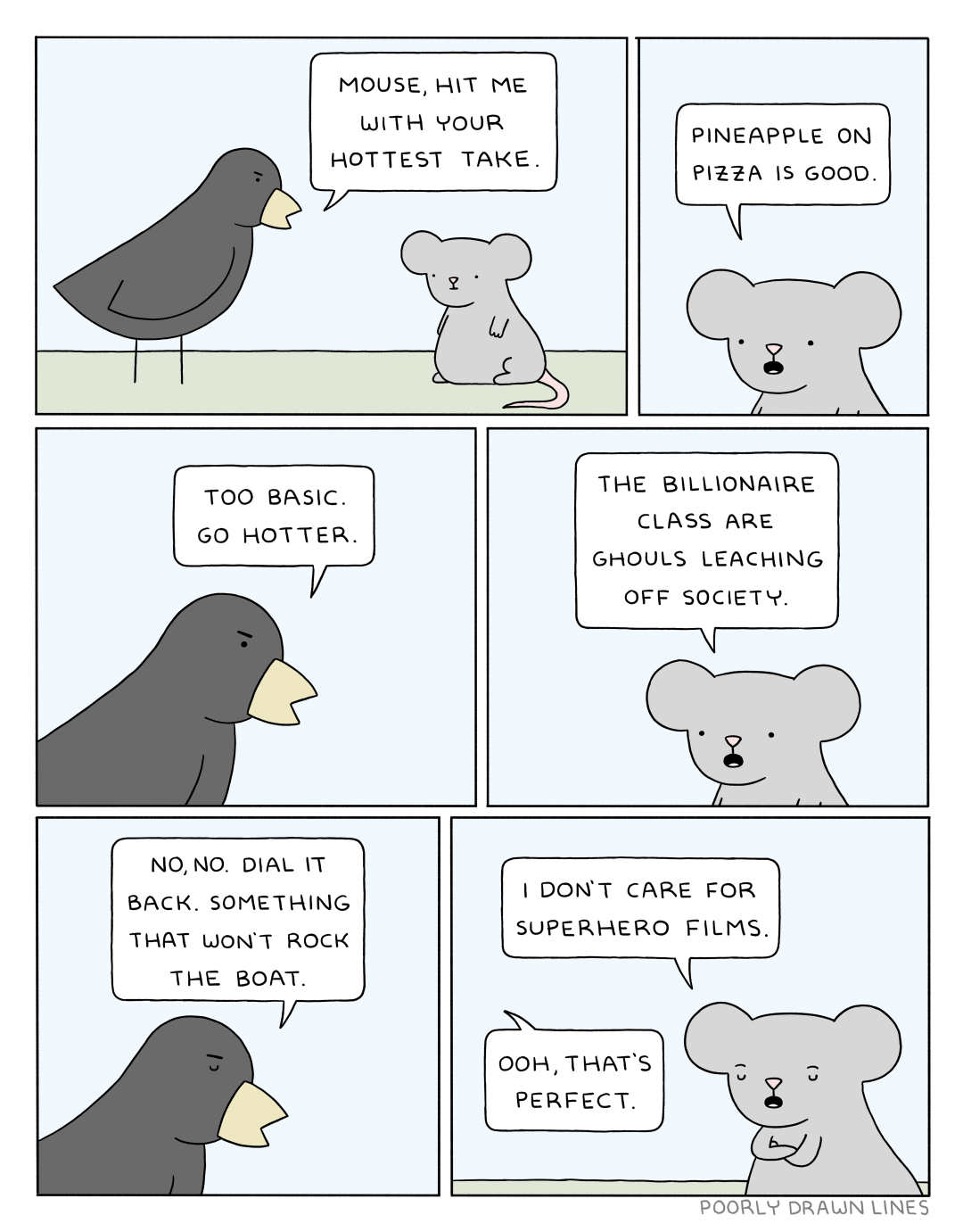Dear Self; we need to talk about ambition
🔗 a linked post to
lesswrong.com »
—
originally shared here on
Like the programming path, the legible independent ambition path works for some people, but not you. The things you do when pushed to Think Big and Be Independent produce incidental learning at best, but never achieve anything directly. They can’t, because you made up the goals to impress other people. This becomes increasingly depressing, as you fail at your alleged goals and at your real goal of impressing people.
So what do we do then? Give up on having goals? Only by their definition. What seems to work best for us is leaning into annoyance or even anger at problems in the world, and hate-fixing them.
You’ve always hated people being wrong, and it turns out a lot of things can be defined as “wrong” if you have the right temperament. Women’s pants have tiny pockets that won’t fit my phone? Wrong. TSA eating hours of my life for no gain? Wrong. Medical-grade fatigue? Wrong. People dying of preventable diseases? Extremely wrong. And wrong things are satisfying to fix.
Yesterday, I was doing the dishes when I saw a mostly eaten yogurt cup laying in the sink.
As I started rinsing it out, I wondered whether I should throw it in the garbage or the recycling bin.
I thought about this quiz game that my county has on their website where they present various household items and you have to say whether it can go in the recycling, compost, or garbage.
The last time I played it, I found myself just getting mad.
Mad that I was getting questions wrong.
Mad that I can’t tell if this quiz is up to date with the latest recycling advice.
It occurred to me, while rinsing the cup, that I don’t really like learning most things for fun. I learn them because I like to ensure I have the best chance at complying with the rules.
I like passing through the hoops that were laid out for me.
I liked school so much because there was a clearly defined metric for success and failure.
But as I’m now 36 years old, success doesn’t really get defined in that way anymore.
I am glad this article surfaced in my Instapaper queue this morning, because I think it’s mostly the article I would’ve written for myself.
I really enjoyed the author’s advice on determining authentic motivation, viewing procrastination as a workers’ strike, and realizing that your taste will often outpace your abilities.
